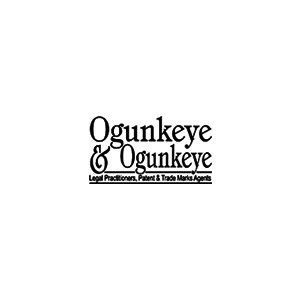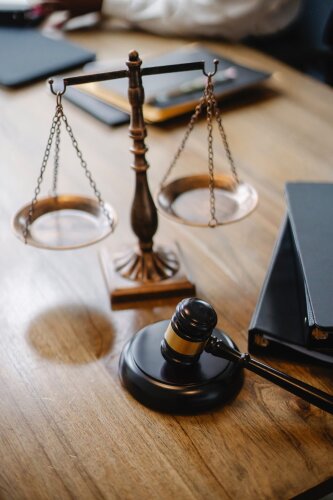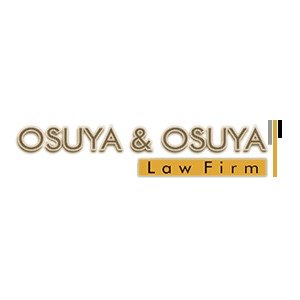Best Civil Litigation Lawyers in Nigeria
Share your needs with us, get contacted by law firms.
Free. Takes 2 min.
Or refine your search by selecting a city:
List of the best lawyers in Nigeria
Nigeria Civil Litigation Legal Questions answered by Lawyers
Browse our 1 legal question about Civil Litigation in Nigeria and read the lawyer answers, or ask your own questions for free.
- Damages claims from non payments of terminal benefits
- A new company taking over a liability ( with the terminal benefits from the former company inclusive) and refused payment for 4years plus and counting ..
-
Lawyer answer by Nomos Legal Practice
Hello and thank you for your interest to hire a lawyer to claim or receive damages from non-payments of terminal benefits for over 4 years and counting.We increase access to justice globally as we advise clients on their rights and...
Read full answer
About Civil Litigation Law in Nigeria
Civil litigation in Nigeria is a legal process where civil matters are resolved in a court of law. This encompasses all disputes that are non-criminal in nature, such as breaches of contract, property disputes, family law issues, and personal injury claims. The aim is to seek legal remedies, which are usually financial compensation or specific performance. The process involves a plaintiff bringing a lawsuit against a defendant, and both parties presenting their case before a judge who makes a binding decision. Civil litigation is governed by various laws and rules, including the Civil Procedure Rules, which dictate how cases are to be conducted.
Why You May Need a Lawyer
Engaging a lawyer in civil litigation can be crucial for several reasons:
1. Complex Legal Processes: Civil litigation involves detailed legal procedures that require expertise to navigate efficiently.
2. Legal Representation: A lawyer can represent your interests in court, ensuring that your case is presented effectively to maximize the chances of a favorable outcome.
3. Strategic Advice: Lawyers can provide strategic advice on the likelihood of success, potential settlements, and alternative dispute resolution methods.
4. Rights Protection: A lawyer ensures that your legal rights are protected throughout the litigation process.
5. Negotiation Skills: Many civil disputes are resolved outside court through negotiation, and a lawyer can negotiate on your behalf to reach a fair settlement.
Local Laws Overview
Several key aspects of local laws are relevant to civil litigation in Nigeria:
1. Civil Procedure Rules: These rules provide the framework and procedures for civil litigation in Nigerian courts, including issues of jurisdiction, pleadings, and filing processes.
2. Limitation Laws: Certain types of civil cases must be filed within specific periods, as stipulated by statutes of limitation, beyond which claims may not be allowed.
3. Evidence Act: This act governs the admissibility of evidence in civil trials, outlining what can be presented in support of a case.
4. Land Use Act: For land-related disputes, this act provides the legal framework governing land tenure and usage in Nigeria.
5. Contract Law Principles: These principles are essential for understanding obligations and breaches that may lead to civil litigation over contractual matters.
Frequently Asked Questions
What types of cases fall under civil litigation in Nigeria?
Civil litigation covers a broad range of non-criminal disputes, including contractual issues, tort claims (such as negligence or defamation), property disputes, family law matters like divorce, and probate issues.
How long does a civil litigation case take in Nigeria?
The duration varies depending on the complexity of the case, court availability, and whether the case goes to trial. Cases can take months or even years to resolve.
Can I represent myself in a civil litigation case?
While it's possible to represent yourself, it's generally advisable to have a lawyer due to the complexity of legal procedures and the need for effective advocacy.
What is a 'pre-action protocol' in civil litigation?
Pre-action protocols are steps that must be taken before a court case begins, such as sending a letter of claim to the other party. They aim to encourage settlement and reduce unnecessary litigation.
What are the costs involved in civil litigation?
Costs include court fees, legal fees for lawyers, and potential expenses for gathering evidence or expert witnesses. Costs can vary significantly based on the case.
What is mediation, and how is it different from litigation?
Mediation is an alternative dispute resolution process where a neutral third-party mediator helps the disputing parties reach a settlement. It's generally less formal, faster, and cheaper than going to court.
Can I appeal a civil judgment in Nigeria?
Yes, parties can appeal a civil judgment if they believe there has been a legal error or misjudgment. Appeals are made to higher courts, and specific processes must be followed.
What evidence is required in a civil litigation case?
Evidence can include documents, witness statements, expert testimonies, and physical evidence. The type of evidence required depends on the nature of the case.
Are civil litigation proceedings public in Nigeria?
Generally, civil court proceedings are public in Nigeria, with court records accessible to the public unless a judge orders otherwise for confidentiality or sensitive matters.
What is the role of a judge in civil litigation?
The judge's role is to ensure a fair trial, interpret and apply relevant laws, assess the evidence presented, and deliver a final decision or ruling on the case.
Additional Resources
For individuals seeking legal advice in civil litigation, the following resources can be beneficial:
1. Nigerian Bar Association (NBA): The NBA provides resources and a directory of registered lawyers and law firms.
2. Lagos Multi-Door Courthouse (LMDC): Offers mediation services as an alternative to litigation for resolving disputes.
3. Federal High Court of Nigeria: Provides access to rules and procedures related to civil litigation.
4. Legal Aid Council of Nigeria: Offers assistance to individuals who cannot afford legal representation.
5. Corporate Affairs Commission (CAC): For matters involving corporate disputes and business litigation.
Next Steps
If you need legal assistance in civil litigation, consider the following steps:
1. Identify Your Legal Needs: Clearly outline your issue and what you hope to achieve through litigation or settlement.
2. Consult a Lawyer: Seek advice from a qualified civil litigation lawyer to assess the merits of your case and explore your options.
3. Gather Information: Collect all relevant documents, contracts, records, and evidence that pertain to your case.
4. Explore ADR: Consider alternative dispute resolution methods, like mediation, which may resolve your issue more efficiently than court proceedings.
5. Proceed with Legal Action: If litigation is necessary, your lawyer will guide you in filing your claim and represent you in court.
Lawzana helps you find the best lawyers and law firms in Nigeria through a curated and pre-screened list of qualified legal professionals. Our platform offers rankings and detailed profiles of attorneys and law firms, allowing you to compare based on practice areas, including Civil Litigation, experience, and client feedback.
Each profile includes a description of the firm's areas of practice, client reviews, team members and partners, year of establishment, spoken languages, office locations, contact information, social media presence, and any published articles or resources. Most firms on our platform speak English and are experienced in both local and international legal matters.
Get a quote from top-rated law firms in Nigeria — quickly, securely, and without unnecessary hassle.
Disclaimer:
The information provided on this page is for general informational purposes only and does not constitute legal advice. While we strive to ensure the accuracy and relevance of the content, legal information may change over time, and interpretations of the law can vary. You should always consult with a qualified legal professional for advice specific to your situation.
We disclaim all liability for actions taken or not taken based on the content of this page. If you believe any information is incorrect or outdated, please contact us, and we will review and update it where appropriate.
Browse civil litigation law firms by city in Nigeria
Refine your search by selecting a city.

















